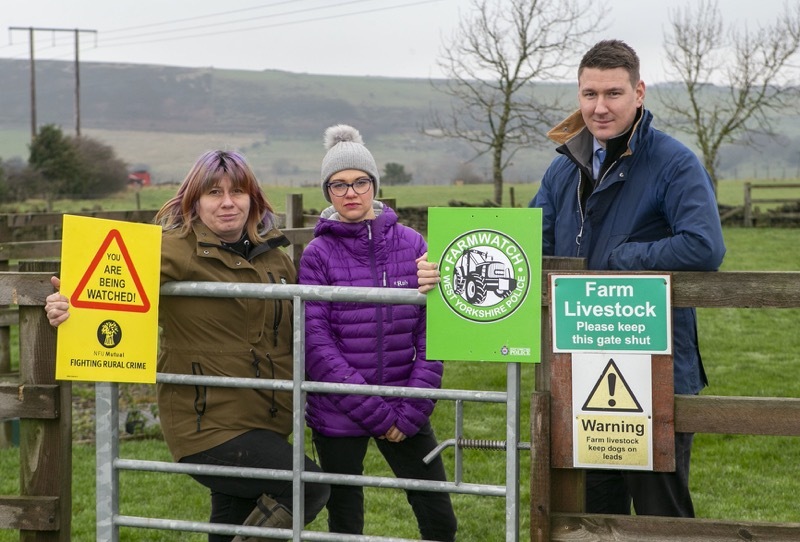BARNSLEY’S isolated outposts will be better protected from the ongoing scourge of rural crime thanks to a funding boost which will make its way to dedicated police units prowling on-the-border locations.
It’s been alleged that organised crime rings have been identifying farms - seen as easy targets due to their isolated settings and easy road routes out of the county - with the use of drones before targeting tractors, Land Rovers and quad bikes.
The National Rural Crime Unit and National Wildlife Crime Unit will receive more than £800,000 to continue their work tackling rural and wildlife crime, which can pose unique challenges for policing given the scale and isolation of rural areas.
It follows the government’s flagship Crime and Policing Bill, which gives police and local authorities new powers to tackle crime, including crimes which cause damage to rural, isolated communities.
Parish councils in Barnsley - which represent the town’s most isolated villages such as Shafton and Penistone - suggest crime rates have surged by more than a third which led bosses to go back to the drawing board.
Funding will enable officers to continue to increase collaboration across police forces - such as South Yorkshire, West Yorkshire and Derbyshire - harnessing the latest technology and data to target the serious organised crime groups involved in crimes like equipment theft from farms, which has been reported in Barnsley.
South Yorkshire Mayor Oliver Coppard said: “I promised to focus on those issues and challenges which are hurting people, families and businesses every day, and to confront the legacy of lost trust and low confidence that can sometimes undermine the relationship between people and the police.
“This plan starts to put those priorities into action, setting out what we are going to do to build a place where everyone feels safe and secure, whoever, wherever they may be.”
Minister for Crime and Policing, Dame Diana Johnson, said the extra cash will provide a new form of reassurance to residents.
“When you report a crime, it should be properly investigated, with victims having faith that justice will be delivered, and criminals punished,” she added.
“But too often victims of crime in rural communities have been left feeling undervalued and isolated, whether it be farmers having equipment or livestock stolen, or villages targeted by car thieves and county lines gangs.
“This new funding, alongside the forthcoming Rural and Wildlife Crime Strategy and our Neighbourhood Policing Guarantee, will help deliver the change rural communities deserve, ensuring no matter where you live your streets are safe and police responsive to your local needs.”
Coun Hannah Kitching, who represents Penistone West, told the Chronicle that some people in her ward - particularly farmers - feel they have been left in limbo for years.
“Some people, particularly farmers, often feel like sitting ducks due to the more isolated nature of their locations,” Coun Kitching said.
“They’re often caught between neighbouring police forces, too.
“Thieves know that and have taken advantage of not just the quiet roads but the relatively easy routes in and out.
“We have been calling for a more joined-up approach from the police as we have South Yorkshire, West Yorkshire and Derbyshire forces all closely linked in the borough.
“I have some people in my ward who live in South Yorkshire but their land stretches into West Yorkshire - the criminals who target these people know all about that and they’re not going there on a whim, their break-ins are planned.
“Penistone is a huge area to police and unfortunately there are not enough officers to cover this huge stretch.
“Farmers who have been impacted by rural crime are very effective at talking to each other, sharing CCTV and anything untoward, but they deserve help.
“This crime rise has severely affected residents in my ward and I believe there’s a real problem with organised crime groups who are specifically targeting hard-to-reach communities.
“They are getting away with costly equipment: four-by-fours, tractors and quads, while there’s also a harm to wildlife.
“It’s important that those in need receive the help they have been asking for.”



























